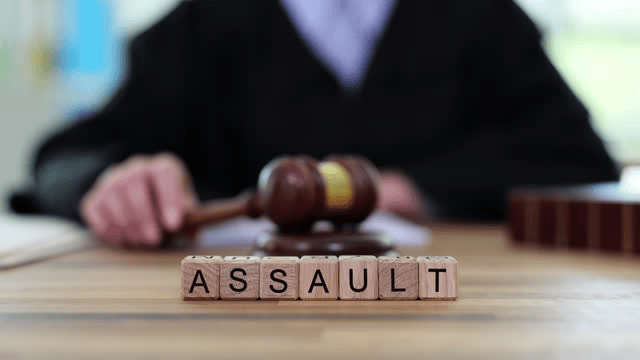Will I go to jail for assault causing bodily harm? Yes, it is possible. Imagine a heated argument that escalates and someone gets hurt due to the tension. It’s a scenario more common than we’d like to admit. Moreover, if you find yourself on the wrong side of an assault causing bodily harm charge, the consequences can be severe.
It’s important to understand that jail time isn’t always the automatic consequence. The actual sentence will depend on various factors like the severity of the assault, the victim’s injuries, and any prior criminal history. Hence, it’s important to unpack factors that may affect jail time or even lesser penalties. Read on to learn more about ‘Will I go to jail for assault causing bodily harm’.
Definition of Assault Causing Bodily Harm
Before we further discuss the topic of ‘‘Will I go to jail for assault causing bodily harm’, let us first define key terms. Section 59 of Crimes Act 1900 outlines the legal consequences when an assault occasions actual bodily harm in Australia. Let’s break it down:
- Assault Occasioning Actual Bodily Harm: This refers to an assault that causes injuries beyond minor discomfort. Examples include cuts, bruises, fractures, or even psychological trauma.
- Maximum Penalty: The base penalty for assault occasioning bodily harm is imprisonment for up to five years.
- Increased Penalty for Group Assault: If the assault is committed “in the company of another person or persons,” the maximum penalty jumps to seven years imprisonment. This means that if you participate in an assault with someone else, the potential consequences become more severe.
While a bruise or a scrape might fall under ABH, it’s important to understand that the severity of the injury plays a crucial role. Here’s a breakdown of some examples:
- Minor Injuries: Bruises, cuts, minor burns, and grazes are all considered ABH. These injuries are typically temporary and don’t require significant medical intervention.
- Moderate Injuries: Fractures, sprains, dislocations, and concussions fall under moderate ABH. These injuries can be more serious, requiring medical attention and potentially causing some level of disability.
- Severe Injuries: Internal injuries, significant blood loss, and loss of consciousness are considered severe ABH. These injuries can be life-threatening and require extensive medical treatment.

Actual Bodily Harm vs Grievous Bodily Harm
Both of these terms are widely used in criminal law proceedings. However both of these terms have a stark difference aside from other types of assault like common assault
ABH: The Lesser Harm
Imagine a shove that leaves a bruise, a punch that results in a cut, or a sprained ankle from a tackle. These are all examples of actual bodily harm. ABH injuries are:
- Temporary: They typically heal without lasting consequences.
- Painful: They cause discomfort and pain, but are not life-threatening.
- Treatable: These injuries usually require medical attention, but are treatable with medication, rest, or basic medical procedures.
GBH: The More Serious Offence
Grievous bodily harm signifies a significant step up in severity. Imagine a broken bone, a deep laceration requiring stitches, internal injuries, or a concussion. GBH injuries are:
- Potentially Life-Threatening: These injuries can be serious and pose a risk to the victim’s life.
- Long-Term Impact: They can cause permanent disability, scarring, or lasting health problems.
- Extensive Treatment: GBH injuries often require extensive medical intervention, including surgery, hospitalisation, or ongoing rehabilitation.
Will I Go to Jail for Assault Causing Bodily Harm: Legal Process and Defence
Assault occasioning ABH is usually handled in the Local Court (summary jurisdiction). However, the prosecution can choose to elevate the case to the District Court (indictable offence). In this scenario, you have no say in the venue. Several legal defences can be explored depending on the circumstances of your ‘Will I go to jail for assault causing bodily harm’ case. These include:
- Self-Defence: You acted to defend yourself or another person from a perceived threat, and your actions were reasonable and proportionate to the danger.
- Duress: You were forced to commit the assault under a serious threat from another person.
- Accident: The assault was unintentional. To be found guilty, the act must be intentional or reckless.
- Mental Impairment: You suffered from a mental condition that prevented you from understanding the nature of your actions or their wrongfulness.
- Immature Age: Children under 10 years old cannot be held criminally responsible.
Pleading Guilty vs Pleading Not Guilty
Let’s discuss a guilty and not guilty plea in this article about ‘Will I go to jail for assault causing bodily harm’.
1. Pleading Not Guilty:
If you believe you’re innocent or have a valid defence (like self-defence), pleading not guilty might be the right path. Here’s what the prosecution needs to prove beyond reasonable doubt in such cases:
- You caused fear of immediate violence in the victim, or made unwanted physical contact.
- The contact was without the victim’s consent.
- Your actions were intentional or reckless.
- You lacked a lawful excuse for your behaviour.
- You inflicted an injury beyond minor discomfort (bruises, scratches) or caused significant psychological harm.
Regardless of your plea, legal guidance is crucial. A lawyer can assess your case, explain your options, and represent you in court. They can also help you navigate the complexities of self-defence laws and other potential defences.
2. Pleading Guilty:
If you accept responsibility for your actions, pleading guilty at an early stage might be an option. This shows remorse and may lead to a less severe sentence. However, never plead guilty without consulting a lawyer first.
Even with an ABH conviction, the court might not impose a custodial sentence (jail time). The judge considers all aspects of the case, including mitigating factors (remorse, cooperation) and aggravating factors (weapon use, vulnerable victim).

Seek Legal Advice With Us
ABH charges are serious, but you have options available such as seeking legal advice from JB Solicitors. Whether you’re the accused or simply seeking information, our team of criminal lawyers are here to help you understand the potential jail time associated with assault causing bodily harm or actual bodily harm charges.
Contact us today if you need more information about ‘Will I go to jail for assault causing bodily harm’.
